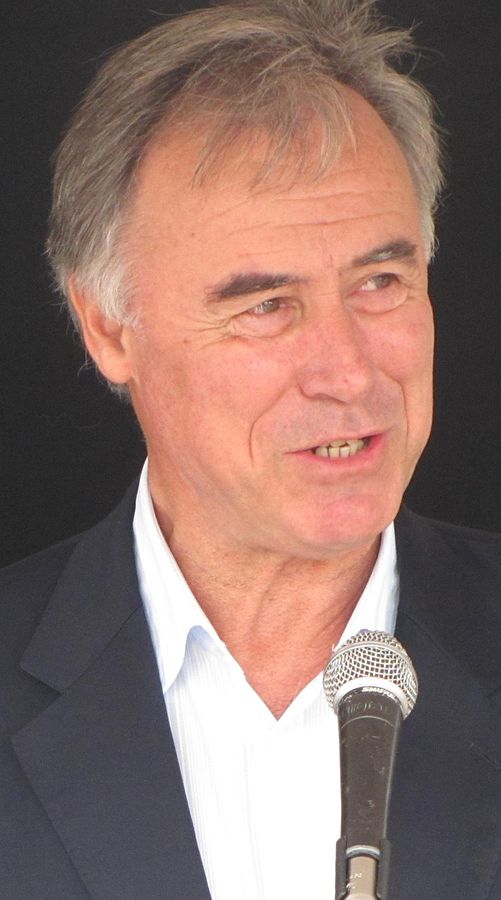News
New Australian government lawmaker under dual citizen cloud

John Gilbert Alexander (born 4 July 1951 in Sydney) is a former Professional Touring Tennis Player and current Australian Politician. (Photo By Photographer: Josh Bihary, copyright John Alexander – Contact us/Photo submission, CC BY-SA 3.0)
CANBERRA, Australia — Another Australian politician has had his eligibility to sit in Parliament called into question due to a constitutional ban on dual citizens, while the prime minister proposed making all lawmakers prove they are not foreign nationals.
Ruling party lawmaker John Alexander would not comment Tuesday on media reports that he was seeking clarification from London on whether he had inherited British citizenship from his father.
“I understand he renounced his British citizenship before I was born because he was a proud Australian,” Alexander said in a statement about his father, who died in 1987.
If Alexander proved to be a dual citizen he would become the seventh lawmaker to be forced from office since the High Court last month made a ruling to enforce a 116-year-old constitutional ban on foreign citizens sitting in Parliament. That has created an unprecedented political crisis that could threaten the majority of Prime Minister Malcom Turnbull’s conservative coalition.
House of Representatives lawmakers found to be dual citizens must renounce their foreign citizenship and then win a byelection if they want to return to their seat. Deputy Prime Minister Barnaby Joyce, who was disqualified by the High Court last month over New Zealand citizenship he inherited from his New Zealand-born father, has chosen that route and will run in a Dec. 2 election.
Five senators who have lost their seats will usually be replaced by members of their own parties without a byelection so there is no change to the political balance of power.
Australia’s ban on dual national lawmakers is rare if not unique in the world, and many argue it is outdated in a nation of immigrants where half the population was born overseas or has a foreign parent
Alexander, who has been in the House of Representatives since 2010, announced his father was born in Britain after Turnbull on Monday proposed making all lawmakers prove they are not dual citizens.
Australian-born lawmakers, such as Alexander and Joyce, would have to state where and when their parents were born, details that could reveal an inherited second nationality. Overseas-born lawmakers would provide records of how and when their foreign citizenship was renounced. The citizenship registry proposal needs the endorsement of Parliament.
Turnbull told Australian Broadcasting Corp. radio on Tuesday that Alexander had told his government colleagues that he believes he is not a dual citizen.
Turnbull said his proposed demand for all lawmakers to prove their nationality could result in more byelections that could impact his government’s slim majority.
“I take it as a given that every Member of the House and the Senate as of today believes that they are eligible to sit in the House or the Senate,” he said, after explaining that anyone who thought otherwise should resign.
Independent lawmaker Andrew Wilkie called on Alexander to prove that his father had renounced his British citizenship before Alexander was born on July 4, 1951. Australian citizenship has only existed since Jan. 1, 1949, giving Alexander’s father less than three years to become solely Australian before his son was born.
“Given the furor over this, knowing that he has a British-born parent, it would’ve been wise of him to look into this and certainly to have looked into it well before the media challenged him on it yesterday,” Wilkie said.
Calls for an audit of all lawmakers’ citizenship intensified when a senior senator announced last week that he was resigning from his 350,000 Australian dollar ($270,000) a year job because he had inherited British citizenship from his father. Government ministers said he should have declared his dual citizenship much earlier.
Turnbull has previously resisted calls for added scrutiny of lawmakers’ citizenship status. His critics say he fears losing more lawmakers because of his government’s precarious control of Parliament.





















